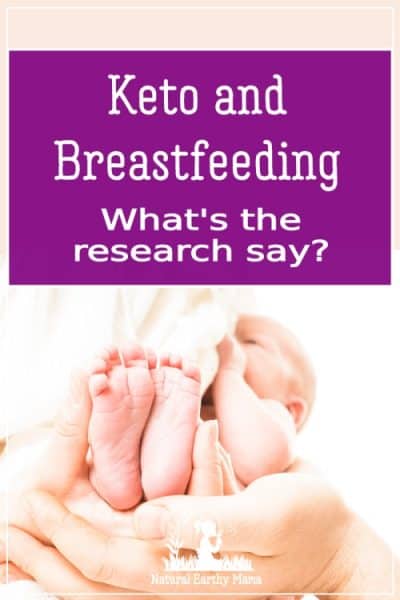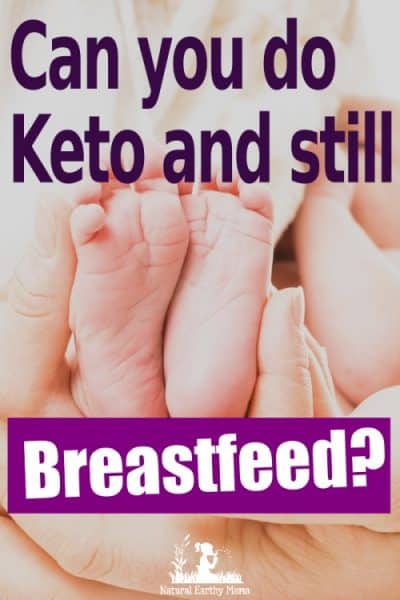 The ketogenic diet is receiving a lot of press lately. There are a myriad of unfounded and unwarranted criticisms of the diet, which, when you look at 1) the actual research that isn’t funded by grain companies and 2) use your common sense, you see are just great news stories and nothing more.
The ketogenic diet is receiving a lot of press lately. There are a myriad of unfounded and unwarranted criticisms of the diet, which, when you look at 1) the actual research that isn’t funded by grain companies and 2) use your common sense, you see are just great news stories and nothing more.
Eating a ketogenic diet while pregnant or breastfeeding is also one of those hot topics.
Please read: This information is provided for educational purposes only and is not intended to treat, diagnose or prevent any disease. We encourage you to make your own health care decisions in partnership with a qualified health care professional.
This post contains affiliate links, this means at no extra cost to you, we make a commission from sales. Please read
our Disclosure Statement
In the article below we will be looking at keto and breastfeeding, is doing the ketogenic diet while breastfeeding safe?
Babies and Ketosis
Did you know that babies are actually born in a state of ketosis (1)? And that when they are breastfed, they continue to be in a state of ketosis (2)?
Ketosis is a natural state for humans (and many other animals, like dogs and cats). Ketosis is where your body is using fat as fuel, and a by product of this is that your body makes ketone bodies. These ketones can then fuel your brain much more effectively than glucose can (3).
There is only one cell in your body that can ONLY run on glucose and that is the red blood cells. Luckily our bodies have a perfect system of creating glucose called gluconeogenisis. It is more than capable of making enough glucose to fuel the red blood cells.
What does the research say about Keto and Breastfeeding?
Breastfed babies get a diet of human milk which contains (on average) 0.8% to 0.9% protein, 4.5% fat, 7.1% carbohydrates, and 0.2% minerals (4). Which when you take all the liquid out leaves quite a high fat diet.
Women that eat a low carb, high fat diet have a higher fat content milk, with a higher calorie count (6).
This study showed that:
- Neither diet had an effect on milk lactose or protein concentration.
- Milk fat concentration and the energy content of milk were higher during the LCHF diet than the HCLF diet.
- Regardless of the diet, daily breast milk production volume and daily infant breast milk intake remained the same.
- Women used/burned/fed the baby more calories on the LCHF diet than during the HCLF diet.
So in normal terms, a women following a low carb-high fat diet can lose more weight without affecting her breastmilk supply or the energy intake of her baby when compared to a “standard” higher carbohydrate diet.
How many calories should a breastfeeding mother intake?
If you are following a “standard” American (high carb) diet it is recommended that you take in an extra 500 calories per day.
A breastfeeding mother should be getting a bare minimum of 1500-1800 calories a day to make sure that both her and baby are getting enough nutrition, without sending her body in to starvation mode.
Does a keto diet affect breastfeeding?
Yes, it increases the calorie content of your milk, and increases the fat content of your milk, without upsetting any of the other nutrients.
A nutrient rich, well formulated ketogenic diet is a great option for when you are breastfeeding.
Focus on whole foods, organic where possible, natural fats and meats. Fish, nuts and lower GI fruits are all good additions, particularly when you are breastfeeding.
Avoid the processed “keto foods” that come in packets. Generally they are not always keto for one thing, and they probably contain all sorts of extra chemicals to make them taste satisfying.
How many net carbs should I eat while breastfeeding?
Breastmilk contains lactose, which is a sugar that your body makes by using some of your glucose. To avoid blood sugar dips that are too low, try to keep your carbohydrate in take closer to 50g per day rather than the more usual keto recommendation of 20-25g.
This is easy to do by adding 2-3 additional pieces of fruit to your daily diet, on top of a more normal keto diet plan.
Can you take ketones while breastfeeding?
Taking exogenous ketones is a controversial topic. It depends why you are taking them.
Generally ketones that you drink/supplement are only beneficial for athletes that are keto adapted and need an extra energy boost before or during training.
As a dietary supplement, all they really are is additional energy. Which is not what you want to be doing if you are trying to actually lose weight.
Taking ketones when you are not keto adapted may be dangerous if you already have raised sugar levels. Ketoacidosis is a life threatening condition where (typically diabetics) have very high blood sugars as well as very high ketone levels at the same time. This puts the body in a dangerous acidic state that can lead to death.
While drinking ketones may make ketones show up on pee strips, all it is really showing is that you are peeing out the money you just paid for the ketones in the first place!
The ketones won’t harm your baby, but I would’t waste my money on buying them.
Help, my milk supply dropped on the Keto Diet
There are some women that find that when they change to a keto diet, that they experience a drop in milk supply. The first thing to check is is it really a drop in supply or is it just the 6 week breast supply change that happens to everyone.
If it really is a drop in milk supply make sure that you are:
- Drinking plenty – the first 2 weeks in keto your body will flush out a lot of fluid
- Eating plenty of salt – keto stops your body retaining salt, and where the salt goes the water follows
- Eat enough calories – fat is very filling, make sure you are getting in enough food – focus on the vegetables and protein first and top up with the fats to keep you full.
- Keep feeding often – with the higher fat content in your milk, baby might not need to feed quite as often as now your milk is more rich, follow baby’s lead
- Ease in to keto (see below)
Tips for Starting Keto While Breastfeeding
1. Start slow
The dreaded carb flu hits the hardest if you shock your body by suddenly dropping out the carbs. If you are breastfeeding and wanting to start the ketogenic diet, I suggest that you wean yourself off the carbs.
For the first 3 days, change NOTHING, just track what you typically eat in a carb tracker like carb manager.
Use this to work out how many calories you are typically eating and how many grams of carbs.
For the first week aim to cut out all sugar.
Week two cut out your bread, pasta, and rice
Week three stop eating the starchy vegetables that grow under the ground.
Week 4 adopt a ketogenic diet with 2-3 additional fruit servings per day to keep your carbs at about 50g per day.
2. Drink LOTS
Breastfeeding mama’s need lots of water. Keto people adapting to the ketogenic diet need lots of water, you can only imagine what happens when you are both.
Keep plenty of chilled water on hand and drink as much as your thirst tells you to.
If you have constipation, headaches, dry mouth or lethargy, drink some more.
3. Get your electrolytes
During the adjustment period, your kidneys will let out a lot of electrolytes. To counter this try making some ketoarade, and eat plenty of salt on your food.
If you are light headed, getting cramps or having issues with constipation, this might be the problem.
4. Keep up the nutrients
There is a big push from a particular keto ‘expert’ to get 9 cups of vegetables per day for your potassium, but actually this isn’t a real thing.
Your body is very unlikely to get low potassium if your kidneys are functioning correctly, and actually too much potassium is just as deadly as too little.
So trust your kidneys to do their job, and you focus on getting plenty of nutrients for you and your baby from leafy green vegetables and meat.
Grass fed butter (the yellow stuff) has high levels of vitamin D and A both of which are very beneficial.
How do I know my baby is getting enough milk when I am doing keto?
You need to trust yourself and your baby with this one. There is no magic gauge on your breast or on your baby that will tell you how much milk you are making.
A well fed baby will:
- Have plenty of wet diapers
- Poop regularly (for a newborn that is 1-several times per day, for a 6+ week old it can be from several times a day to only once per week, but most babies have a set amount of time they will go)
- Sleep soundly
- Get that milk drunk look after a feed (relaxed hands, often asleep)
- Gain weight when weighed weekly (not more often)
A hungry baby will
- Have only 1-3 wet diapers in 24 hours
- Get constipated (little hard marbles of poop)
- Have a shrill cry
- Cry a lot
- Seldom settle in to a good sleep
- Seem to get angry and frustrated at the breast
If this is your baby, work on drinking more, eating plenty and look at some of these ideas
A dehydrated baby will:
- Not pee for 8 or more hours (get to a doctor asap!)
- Have sunken eyes
- Have a dipped fontanel (the soft spot on the top of their head)
- Become listless and floppy (ring an ambulance)
Dehydration is a critical condition, seek medical help immediately.
Keto and Breastfeeding: Is Doing the Ketogenic Diet While Breastfeeding Safe?
Ketosis is a natural state where your body is using fat for fuel and creating ketone bodies for your brain and gut to use.
The state of ketosis is very anti-inflammatory and has been shown to reduce the risk of all major common causes of natural death.
Humans have lived in ketosis for milena, and many populations still live this way and thrive while doing so. You yourself go in to mild ketosis every night while you sleep.
Babies are born in a state of mild ketosis and stay that way until we introduce starchy foods to them (read here about weaning without grains).
If keto is something you would like to consider, be sure to check out our free keto resources and sign up for the keto kickstarter where you get a 10 day meal plan and all the information you need to get you started on the keto diet.





